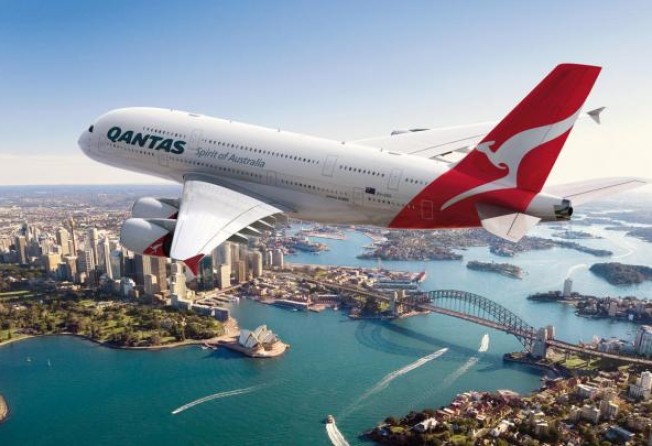Qantas sees tie-up benefits
Carrier filling up extra seats to Singapore after pact with Emirates

Qantas Airways, Australia's largest carrier, says it is managing to fill a surge in capacity to Singapore from its tie-up with Emirates as economic growth encourages travel demand in Asia.
The airline, which increased seats to Singapore by 40 per cent from the alliance, is seeing forward bookings over the next few months "growing into that capacity quite quickly", according to Simon Hickey, the chief executive of the carrier's international unit.
"We're quite confident about our position in Singapore," Hickey said. "It's a key gateway for Asia where we see a lot of Australian traffic coming to Singapore and then going across Asia."
Qantas' alliance with Emirates, which started on March 31, gives travellers between Australia and Europe the option of flying through Dubai instead of Singapore, the traditional gateway for the so-called "kangaroo route".
The carrier has rescheduled Asian flights to appeal to business class travellers as the Emirates tie-in allows it to reduce unprofitable routes to Europe.
"It's a focus on the Asian side," said K. Ajith, an analyst at UOB Kay Hian in Singapore. "There are a lot of millionaires in this region and travel demand is growing faster than anywhere else, so it makes sense to have a commitment in an Asian hub."
Qantas opened a "multimillion-dollar" lounge in Terminal 1 of Singapore's Changi Airport this week. It can seat 460 travellers and has 20 shower stalls.
Airbus expected airlines in the Asia-Pacific to buy 9,870 aircraft worthUS$1.6 trillion in the next two decades, fuelled by travel growth in the region, chief operating officer John Leahy said in February.
The region would lead demand for new aircraft as economic growth helped boost the size of the middle class by almost five times in 20 years, Leahy said.
The region will account for 33 per cent of global passengers in 2016, according to the International Air Transport Association.
Budget carriers' market share in the region rose to 24 per cent last year from 1.1 per cent in 2001, according to the Capa Centre for Aviation, a trade consultancy.
Travel within the Asia-Pacific overtook intra-North America as the world's biggest aviation market in 2009, according to Iata.
Qantas sought the tie-up with Emirates after losing market share on international routes to Middle East and Asian rivals offering a wider range of connections and more convenient flight times.
Qantas chief executive Alan Joyce pledged to return the carrier's international business to profit after it reported its first annual loss since at least 1993.
The tie-up was worth about A$90 million (HK$735 million) a year before tax to Qantas, said Andrew Gibson, an analyst at Goldman Sachs.